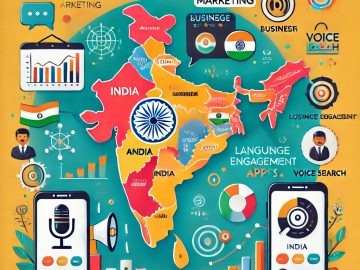The online gaming market keeps on expanding at an impressive clip, both in developed and emerging markets across Asia, Africa and Latin America. Increased smartphone penetration and better internet infrastructure are making it possible for more people to access gaming.
Online gaming shall be able to win a greater percentage share in the entertainment industry by the end of 2024 out of increases in demand across 2023 for gaming on mobile-friendly platforms that are affordable. The countries that are leading in this respect include India, Brazil and Nigeria. Sufficient mobile access caused younger demography to act as catalysts for adoption.
Casino games also continue to show very strong growth in emerging markets, again with mobile gaming at the front. This is supported by a variety of localised Casino Games catering to regional tastes-from unique themes down to gameplay styles formulated to appeal to the local players.
Success in casino gaming across mobile and desktop manifests from the core tenets of accessibility and convenience. Online gaming markets have already achieved some critical revenue milestones worldwide, with Latin American markets growing by about 20% year over year and the Asia-Pacific encompassing close to 48% of the overall global share.
Economic impact: How online gaming is fuelling local economies
Of course, for some, the heft of online gaming goes much further into the economy than simple entertainment alone. In most fledgling economies, it forms huge revenues and jobs. By the end of 2024, the global video game industry is expected to reach over $365 billion, with fifty percent of this increase attributed to emerging markets.
As a matter of fact, the online gaming industry of South Africa was able to raise a revenue of more than $1 billion in the year 2023 and it is still supposed to increase further because mobile internet penetration is still growing. It is developing also quick in Kenya and Ghana, where the mobile penetration is also going so fast. Moreover, online gaming indirectly feeds the local economies through revenues from digital advertising and fintech partnerships.
Payment providers are investing heavily in the infrastructure necessary to support frictionless transactions for gaming customers. In turn, this is supporting fintech ecosystems in host countries.
The economic effect also comes into play in employment, whereby places like India and the Philippines have seen increases in gaming-related employment opportunities within game development, digital marketing and content moderation. Moreover, the industry of online gaming contributes to the improvement of general economic resilience, developing technology skills and creating demand for digital services in these regions.
Localised gaming experiences: Catering to diverse consumer preferences
The trend underlying online gaming in developing markets is the development of local experiences born out of unique cultural tastes, companies operating in this domain expand by shaping their offerings according to local taste and culture. Online casinos operationally based in South Africa have thematic games in the region or connected promotions based on local holidays, or events.
This would include even selecting a host of languages, access to customer support and payment methodology specific mostly to their unique market preferences. The acceptance of many local currencies and further integration of regional payment gateways is going to be very crucial in the acquisition and retention of players, considering credit card buyers are rather low in certain countries.
And in Latin America today, alternative compensatory methods are very popular, such as mobile wallets and prepaid cards, but only to enable further reach into possibilities availed by such sorts of online gaming. This bespoke approach to gaming reflects the industry’s realisation that consumer preference can differ quite a lot across different regions and demographics; personalisation is key to sustainable growth.
The role of technology: From mobile access to fintech innovations
It is the integration of fintech solutions that has been the transformative force in this online gaming landscape, particularly for players from emerging markets. Mobile payment platforms and digital wallets have eased access to online gaming, reducing dependency on traditional banking systems. Because of these fintech innovations-that have made it easier for players to deposit and withdraw funds-more than 60% of all online gaming transactions in such emerging markets are expected to be transacted on mobile platforms by 2025.
Fintech solutions are about mobile money platforms and digital banking services, which are very fundamental in areas where traditional banking levels are minimal. These technologies also support faster transaction times with full security, hence giving more reason and confidence to the players to have confidence in the digital means of paying for gaming services.
The effect can be seen through Africa and Asia, where partnerships between telecom providers and FinTech firms are helping extend the reach of online gaming into areas previously underserved. Enhancing the technology of fintech therefore allows operators to offer flexible pricing structures that can cater to players across a broad range of budgets and democratise access to online gaming.
Online gaming is reshaping business and entertainment in emerging markets through local experiences, mobile access and new fintech developments. Only when these markets continue to grow and mature will gaming remain a very important factor in strategic economic growth and digital transformation, providing entertainment to millions of people worldwide.
With continued growth projected well into the foreseeable future, online gaming in emerging markets is exceptionally positioned to be one of the keystone forces in the global landscape of entertainment and technology.
Please play responsibly. For more information and advice visit
Content is not intended for an audience under 18 years of age




